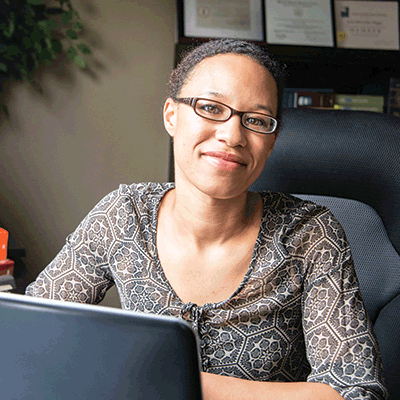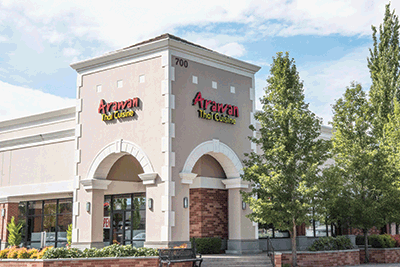“That is a big change from the picture 20 years ago, when immigrants made up nine percent of the labor force and 12 percent of small business owners,” the FPI said in a press release.
The report also shows that immigrant-owned small businesses in America employ an estimated 4.7 million people and generated about $776 billion in receipts for the year of the survey.
 So what about Southwest Washington? A representative at the US Census Bureau said that the agency did not have any data available at a city or even county level about immigrant business owners. The most specific data comes from the FPI analysis, which estimates that immigrants make up 13 percent of small business owners in the Portland metropolitan area, not much higher than the foreign-born share of the total population at 12 percent.
So what about Southwest Washington? A representative at the US Census Bureau said that the agency did not have any data available at a city or even county level about immigrant business owners. The most specific data comes from the FPI analysis, which estimates that immigrants make up 13 percent of small business owners in the Portland metropolitan area, not much higher than the foreign-born share of the total population at 12 percent.
The FPI estimated slightly higher percentages for Washington State, with immigrants making up 15 percent of small business owners and 12.5 percent of the total state population.
Why does the immigrant share of the population and business ownership matter? The FPI offers an answer to this question.
“Growth in immigration over the past 20 years has been closely linked to economic growth,” the report stated. “Among the 25 largest metropolitan areas of the country, the fastest-growing economies also saw among the fastest growth in immigrant labor force between 1990 and 2007, and the slowest-growing economies saw the slowest growth in immigrant labor force.”
The American dream
Joe Varagoon grew up in Thailand in a family that survived on food stamps. His parents owned a restaurant, but Varagoon disliked the family’s choice of occupation – especially when other children went on vacation during the holidays and he was forced to stay and work.
“I thought, well, when I grow up, I don’t want to be in the food business,” Varagoon recalled. “I want to be in a uniform business, like a police man.”
Varagoon went into business as soon as he finished school, but success was hard to come by in Thailand.
“Everything fell down to zero,” he said. “I just decided, well, I’ll try to find a new opportunity, a new land. So that’s why I am here.”
In 1985, a friend gave Varagoon $100 to travel to the United States. He was homeless for his first three months in America because he didn’t have enough money for the down payment on an apartment.
“I just worked in the sewing factory until they closed at 10 p.m.,” Varagoon said. “After that, I packed my backpack and [kept] walking on the street. The bus stop would be my rest area. At six in the morning, the factory would reopen. I would be the first one waiting in line to get into the factory.”
After four years of working in that factory, Varagoon’s childhood dream came true when he accepted a job as a uniformed professional. He worked as a flight attendant for 13 years. The long trips away from his home and family, however, didn’t turn out to be his American dream.
 “I missed my family,” he said. “So we decided, well, we should start a business together. Then we can bond our family – me, my wife and my daughter – together again. Otherwise everybody is falling apart.”
“I missed my family,” he said. “So we decided, well, we should start a business together. Then we can bond our family – me, my wife and my daughter – together again. Otherwise everybody is falling apart.”
The family initially agreed to try and run a grocery store, but a friend warned that the grocery business may not fit their lifestyle. The only other option on the table for his wife and daughter, then, was a restaurant – the one occupation Varagoon had tried to avoid since his childhood.
“I said, oh no, I’m trying to run away from the restaurant business, I know it’s not easy,” Varagoon remembered.
Now, almost three decades after coming to the United States, the Varagoon family runs three thriving restaurants – Arawan Thai Cuisine in Vancouver and Portland and Ginger Pop in Vancouver. Across the three locations, they employ about 50 people.
Even though the restaurant business was something Varagoon avoided, the profession has actually been fulfilling for him. Not only has the business allowed him to make a living for himself and his family, but it has allowed him to help others – which, he said, is his definition of the American dream.
“Everybody who walks into my door [is] looking for an opportunity to have a better life,” Varagoon explained. “We give them a try. Maybe those people can have a better life. We have about seven people who started with us from the original team.
“You don’t have to be rich,” he added. “You just have to be happy and helping people.”
Varagoon’s desire to help others is not atypical amongst immigrant business owners. A 2012 study commissioned by the Small Business Administration found that foreign-born small business owners are slightly more likely to hire employees than native-born small business owners.
Mercedes Riggs, a Vancouver immigration lawyer, can attest to this characteristic of her clients.
“They really care about their employees,” she said. “People often think that if we bring them in they’re going to take away American jobs, when really, it is more than that. In some cases, it creates American jobs.”
Click here for part two of Immigrant, entrepreneur.
{jathumbnail off}



